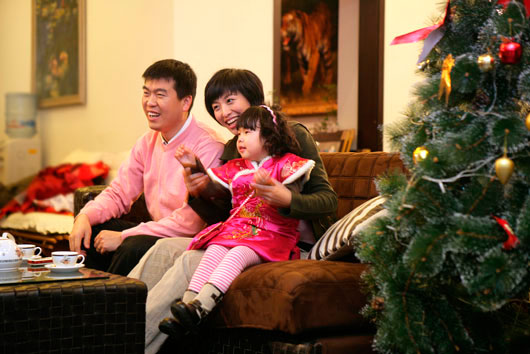
Have you ever wondered how members of the same family, from aunts, uncles and cousins to siblings born of the same parents and raised in the same household, can be so very different? We see it in every family—Grandma’s so easygoing and her son be so strict; Mom’s a zany beatnik and her sister’s a corporate v.p. Anyone with brothers and sisters will even see it within their own sibling group.
Read Related: 7 Rules for Effective Family Bonding
A ground-breaking study by researcher Robert Plomin in the 1980s is still the preeminent resource for psychologists seeking to understand personality diversity within families. Even among siblings, the study showed, while physical traits may be very similar, personalities can be as varied as random individuals from the general population. Expand that to the extended family, including the vast non-traditional extended families we see today, and you’re likely to see more differences than similarities. Still, many of these families are tight-knit and cohesive. They serve as an inspirational example for humanity as a whole. Despite a union of very different people, we can all love, learn and grow together.
So how can you build a strong family? Here are three timeless tips:
• Establish a solid foundation based on shared values. It’s no secret that very religious families tend to be close-knit and strong. Why? Because religion provides a structured means of sharing beliefs and values, a process that begins in infancy, when babies are taken to worship services and undergo the rituals that mark their membership in the religion. While fewer American families are religion-focused than were in decades past, they can all still strive to emphasize the importance of family values and their role in reuniting every family member. Creating rituals and traditions are one way to emphasize values.
• Make your family history a story to celebrate. The story about how brave Uncle Joe once rescued a dog from a well; the singing talents of the three great aunts who performed at county fairs as little girls; the one-cheek dimple that is the family hallmark—these are the stories that make your family special. It’s not about memorizing the family tree, but about ensuring children know that they are part of something greater than themselves—and that is both a privilege and a responsibility. A child who is constantly reminded, with fondness, that she’s the spitting image of wonderful Aunt Bessie will feel a bond with Aunt Bessie—even if she’s been gone for decades.
• Commit to attending, or hosting, family gatherings. Often, the places for sharing those stories are family gatherings—weddings and funerals, holidays and anniversaries. It may be a question of the chicken or the egg. Strong families tend to have many shared family stories. Strong families also tend to gather together frequently—and that’s where those stories are most often shared. Family gatherings are also a good place for family members with very different personalities to learn to find common ground and practice getting along for the sake of everyone at the special event. Imagine what a more peaceful world it would be if we were all forced to play nicely with our obnoxious cousin as children!
Lynn Shafer is a Brooklyn native and a graduate of Brooklyn College. A veteran English teacher in New York City schools, she has utilized oral history to create a body of work that can be read aloud. The story “Ancient Voices, Ritual Chants” was runner-up in the fiction category of the Pirate’s Alley Faulkner Society annual competition in 1995 for previously unpublished work, portions of which she has read aloud at the prestigious 92 Street Y in Manhattan. She has also written and performed poetry at the Truro Center for the Arts on Cape Cod, where she attended workshops for many years. “Stories from Brooklyn” is published by Jo-An Books—“Books that are making history.” Find it at www.jo-anbooks.com and anywhere books are sold.












